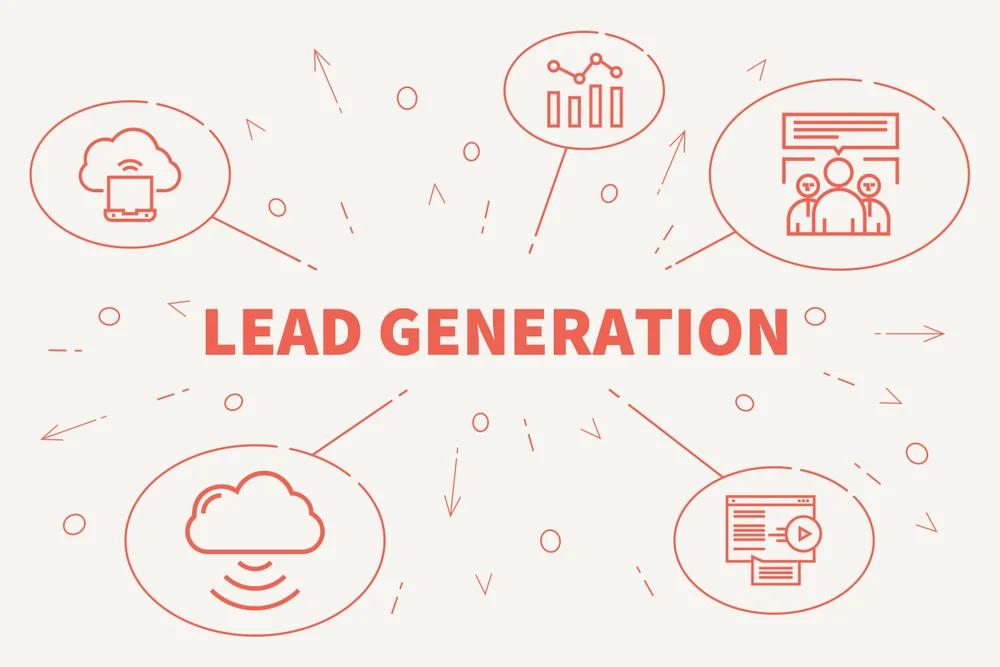As a business owner, where do you spend your time? Do you spend time with your customers, answering their questions and helping them make purchasing decisions? Are you focused on back-office operations? Is your time sucked up by the need to plan a marketing strategy, only to find out you have no idea how to get started?
If you are nodding yes to that last question, or if you think you need help with your marketing, you are not alone. More and more business owners are sourcing their marketing strategies to qualified marketing agencies. And one of the biggest reasons for this is the need for great content to drive business grow.
However, not all marketing agencies, especially content strategy agencies, are the same. For that reason, the team here at LAMA Marketing has put together a list of give questions that you should ask any content strategy agency who is vying for your business.

Question # 1: What is Your Approach to Understand Our Brand and Target Audience?
Great content relies on an understanding of your brand and the people you want to buy your products and services. Agencies that take a vanilla approach are best avoided. You want someone as invested in the success of your business as you are. So, be sure to look for things like the following:
- Comprehensive Audience Research: The agency should employ methods like surveys, interviews, and data analysis to deeply understand your target audience. This enables them to create content that genuinely resonates with your customers.
- Alignment with Brand Voice: It's important that the agency can accurately capture and reflect your brand's unique voice and tone in all their content. They should adapt their writing style to consistently represent your brand's personality across all platforms.
- Development of Detailed Buyer Personas: Look for agencies that create in-depth buyer personas to represent your ideal customers. This helps tailor content to address the specific needs, challenges, and interests of different segments within your audience.
To further assess the agency's grasp of your brand-specific needs, consider asking:
- How will you immerse yourself in our brand to authentically represent our voice?
- What techniques do you use to research and understand a client's target audience?
- Can you provide examples of buyer personas you've developed for other clients?
- How do you customize content strategies to fit the unique characteristics of different businesses?
Question # 2: How Do You Measure Success?
Any content strategy agency that you decide to work with needs to have a method for testing, learning, and analyzing what works and what doesn’t. Plus, they need to have a solid understanding of the KPIs—key performance indicators—that matter for a successful content strategy.
For example, see if the agency refers to these metrics:
- Engagement Rates: This metric captures how audiences interact with content, including likes, shares, comments, and time spent on pages. Strong engagement suggests that content is resonating.
- Conversions: Conversions track how often a desired action (such as signing up for a newsletter or completing a purchase) occurs. This metric reflects the effectiveness of content.
- Organic Traffic: Organic traffic measures the visitors coming to your website from unpaid search engine results. It indicates how well the content strategy attracts people genuinely interested in your business.
- Bounce Rate: This KPI tracks the percentage of visitors who leave your website after viewing just one page. A high bounce rate may suggest that content isn’t meeting visitor expectations or needs better alignment with audience needs.
- Lead Generation: The number of leads generated through content is a valuable metric to understand how effectively content reaches potential customers and drives interest in your offerings.
- SEO Performance: Rankings for targeted keywords, backlinks generated, and other SEO-related metrics indicate the visibility and discoverability of your content in search engines.
- Content Reach and Impressions: This metric shows how many people are exposed to your content across various channels, helping determine the extent of your brand's awareness efforts.
Tracking and reporting on these metrics is important to understand whether the content genuinely contributes to business goals. By taking a data-driven approach, agencies can make informed adjustments, refining the content strategy based on what resonates with audiences and drives results.
Question # 3: What Types of Content Creation Does Your Agency Specialize In?
While written content is non-negotiable for both your human readers and search engines, the truth is that not everyone consumes content in the same way. For this reason, you want varying content that will resonate with more people—videos, blogs, social media, infographics, etc. And the best agencies can help you understand how to take one content theme and make it apply to all of these varying formats.
So, ask these questions to see what their expertise is in specific content types that make sense for your industry.
- What content formats does your team produce most frequently? This will help you understand whether they have in-depth experience with the types of content your audience prefers.
- How do you adapt a single theme across different formats? A skilled agency can show how they develop versatile content that remains consistent in tone and message across platforms.
- Can you provide examples of multimedia campaigns? Reviewing previous work across blog posts, videos, and social media can give you insight into their adaptability and creativity.
Question # 4: How Do You Handle SEO and Content Optimization?
We talk to many business owners each and every day who point us to their websites, proud to show off the content that exists already. Unfortunately, even though the content is interesting, it is often not optimized for search. And when content isn’t optimized, your target audience isn’t going to find it. Plus, if they do, they might quickly get turned away because the content is hard to consume.
Be sure to ask any potential content strategy agency about how they handle things like keyword research, on-page optimization, and content updates. Better yet, ask them if they know what GEO is—if they answer by mentioning local marketing, the fact is that they got it wrong.
Here are some questions to help you get the answers you seek.
- How do you conduct keyword research? Understanding their approach to keyword selection can reveal how well they target audience interests.
- What on-page optimization techniques do you use? Ask about their process for metadata, alt tags, and readability improvements.
- How do you keep content up to date? This can show their commitment to ongoing optimization as search trends evolve.
- What is GEO, and how does it fit into your strategy? Look for an answer that goes beyond local marketing, emphasizing GEO’s focus on crafting conversational, user-centric responses.
- How do you balance SEO and GEO in your content? This question can help you understand their approach to creating discoverable and engaging content for readers.
Question # 5: What is Your Process for Collaboration and Communication?
Though you may be looking to hire a content strategy agency to take content off your plate entirely, it doesn’t mean you shouldn’t have a seat at the table. Have an open and honest conversation with the agency about how you can best work together and the role that you can and should play.
Here are some questions to ask.
- How often can we expect updates on project progress? This gives insight into their regular communication cadence.
- What is your process for gathering and implementing feedback? Understanding their feedback loop will show how flexible and responsive they are to input.
- How do you handle project timelines and deadlines? Ask about how they set, adjust, and communicate timelines to assess their reliability.
- What tools or platforms do you use for communication and project management? Knowing this can help you assess if their methods fit well with your preferred workflow.
Examples of good communication practices include setting clear expectations upfront, responding to questions promptly, and proactively sharing project status. Red flags include inconsistent updates, delayed responses, and vague timelines, which can indicate potential challenges in project management and responsiveness.

Is Your Business in Need of Full-Scale Omni-Channel Support?
Running a business is hard to work and there is never a shortage of things to do and manage. That’s why leaving your content strategy, development, and execution to experts such as our team here at LAMA Marketing can help make your life easier and make your business more successful.
We offer full-scale omni-channel support, which means your brand’s message and content are consistently represented across all channels—whether it’s social media, email, your website, or paid ads—to create a positive unified experience for your audience.
Ready to get started? Contact us today.



.webp)











